 IV) Ambition
IV) Ambition
A) Two Words
My Dad loved to debate. Give him a topic that he could sink his teeth to and buckle up because it was like drinking from a fire hydrant – just a barrage of verbiage.
That’s what made his response to a question I posed to him so significant and so memorable to me. I asked him, “How do you know Christianity is true?” His answer: “It works.”
Two words! And yet, within those two words you have the bottom line that characterizes any truism. Does it work? Does it make sense and does it resonate practically?
B) Yardage Versus Touchdowns
Christianity does work and it makes a substantial difference at every level of the human experience. One area in particular is ambition – the desire to succeed and the fulfillment that comes from accomplishing something significant.
Left unchecked by something profound, ambition can consume a person and reduce them to something either pathologically selfish or utterly disillusioned to the point of despair.
Money and other apparent indicators of success is a lot like yardage. On September 13,th, 2009, the Denver Broncos squared off against the Cincinnati Bengals. When it was all said and done, the Bengals had gained a total of 307 yards, the Broncos, 302. Yet, the Broncos won.17 While the Bengals had more in the way of total net yards, it was the Broncos that came out on top.
It’s almost exasperating, isn’t it? Sometimes it seems that no matter how hard you work, the prize you’re pursuing seems perpetually out of reach and in those rare moments where you’re able to achieve the thing that you’ve been working towards, by the following day another goal has taken its place.
 C) Solomon’s Essay – The Whole Duty of Man
C) Solomon’s Essay – The Whole Duty of Man
King Solomon was king of the Jews and reigned for approximately 40 years.18 At one point he wrote an essay that elaborated on the plight of human beings as far as what it is that drives them and produces lasting fulfillment. What makes his writing so compelling is that he had the resources necessary to conduct the kind of experiments that he did. By virtue of his immense wealth and intelligence, he could test the empirical power of different stimuli to produce true satisfaction. He reflected on the allure of riches and accomplishment as well as the pursuit of knowledge, pleasure and power. In the end he concludes that the only thing that truly matters is your relationship with God and the sense of significance that you enjoy is directly related to the degree of obedience you render to your Heavenly Father:
Now all has been heard; here is the conclusion of the matter: Fear God and keep his commandments, for this is the whole duty of man. (Ecc 12:13)
To go back to our initial illustration, while yardage is an indicator of sorts, in the end the only thing that really counts is the scoreboard. And the scoreboard, in this instance, is what you’re able to do that endures beyond today and echoes through all eternity. In other words, it’s only your obedience to God that produces the lasting impact and fulfillment we desire.
In some ways, this might seem overly philosophical and not especially practical. But Solomon is not alone in his recognition of the mirage that is represented by believing that the acquisition of power and success will satisfy our need for fulfillment
 In June of 2005, Tom Brady was the quarterback for the New England Patriots. He was 27 at the time and had recently won his third Superbowl. Those victories combined with his other accomplishments represented what most would define as a legitimate reason to feel like they had arrived and were now basking in the light of a fulfilling and problem-free existence.
In June of 2005, Tom Brady was the quarterback for the New England Patriots. He was 27 at the time and had recently won his third Superbowl. Those victories combined with his other accomplishments represented what most would define as a legitimate reason to feel like they had arrived and were now basking in the light of a fulfilling and problem-free existence.
But that wasn’t the case. At one point, Tom said: “Why do I have three Super Bowl rings, and still think there’s something greater out there for me? I mean, maybe a lot of people would say, ‘Hey man, this is what is.’ I reached my goal, my dream, my life. Me, I think: God, it’s gotta be more than this. I mean this can’t be what it’s all cracked up to be. I mean I’ve done it. I’m 27. And what else is there for me?”19
Compare that to some of the observations Solomon made:
4 I undertook great projects: I built houses for myself and planted vineyards. 5 I made gardens and parks and planted all kinds of fruit trees in them. 6 I made reservoirs to water groves of flourishing trees. 7 I bought male and female slaves and had other slaves who were born in my house. I also owned more herds and flocks than anyone in Jerusalem before me. 8 I amassed silver and gold for myself, and the treasure of kings and provinces. I acquired male and female singers, and a harem as well—the delights of a man’s heart. 9 I became greater by far than anyone in Jerusalem before me. In all this my wisdom stayed with me. 10 I denied myself nothing my eyes desired; I refused my heart no pleasure.
My heart took delight in all my labor, and this was the reward for all my toil.11Yet when I surveyed all that my hands had done and what I had toiled to achieve,
everything was meaningless, a chasing after the wind; nothing was gained under the sun. (Ecc 2:4-11)
It’s appropriate at this point to underscore the fact that Solomon wasn’t some dark and depressed personality who was incapable of enjoying anything. At one point he says:
I tried cheering myself with wine, and embracing folly – my mind still guiding me with wisdom. I wanted to see what was worthwhile for men to do under heaven during the few days of their lives. (Ecc 2:3)
Solomon is maintaining a sound perspective throughout all his experiments and observations. He’s not melancholy, he’s simply observing the hollowness of the human experience regardless of how embellished it may be with those things that supposedly provide a sense of worth and satisfaction,
In a similar way, Tom Brady is not clinically depressed when he takes a step back and observes the way in which material things and human accomplishments – regardless of their substance and significance – fail in providing true and enduring satisfaction.
The fact of the matter is the goal posts never stop moving. There is never a place where another level of accomplishment isn’t apparent. And in the same way, there’s no earthly prize that cannot either be taken away or stripped of its luster with the passage of time. Regardless of how you attempt to evaluate it, the very nature of our world is transient and it is therefore foolish to define ourselves according to a paradigm that is neither durable nor stable. To use Solomon’s phrase, it is “meaningless.”
D) All Your Might
Still, this is not our cue to refrain from being excellent at what we do or less than aggressive in the marketplace. In the same Divinely inspired text authored by Solomon he says:
Whatever your hand finds to do, do it with all your might…(Ecc 9:10)
In a similar vein, Colossians 3:17 says:
And whatever you do, whether in word or deed, do it all in the name of the Lord Jesus, giving thanks to God the Father through him. (Col 3:17 [see also Prov 22:29; 2 Thess 3:10])
Cloaking a bad work ethic or veiling laziness by holding up a Bible and insisting that your being a slacker is justified in that you’re refraining from being materialistic is a distortion of Scripture. You are commanded to work hard and strive for excellence in whatever you set your mind to do. But you don’t do so in a way where your activity defines who you are. It’s there where your identity and your overall perspective is dictated by your status in the marketplace that you consign yourself to a life of yardage rather than touchdowns.
E) The Validation of Obedience
So here is yet another reason to recognize the Bible as being the Word of God and to accept it as True from cover to cover. The life that is characterized by a relentless pursuit of that which God would do through your obedience to Him produces a sense of purpose and fulfillment that is enduring. It’s not just “noble,” it’s the most reasonable approach that one can take in light of the alternative being an existence founded on temporary plateaus and insatiable appetites.
F) Spiritual Commodities
Another way to look at it is to consider that everything we pine for is a spiritual commodity. While we desire wealth, it’s not the mere accumulation of money, it’s the sense of peace that financial security provides. We want a particular thing because of the joy it produces when we have it in our possession. We seek to be accepted and loved by those we admire. It’s not just a physical exchange, it’s an emotional craving. At every turn, the “thing” we want is something intangible and therefore a spiritual article.
Now look at Galatians 5:22-23:
22 But the fruit of the Spirit is love, joy, peace, forbearance, kindness, goodness, faithfulness, 23 gentleness and self-control. Against such things there is no law. (Gal 5:22-23)
The “fruit” of the Spirit is the result of the Spirit’s activity within you. If you go down the list of the qualities that are produced as a result of Christ living in and through you, you recognize them as the very things that we as human beings desire to have and experience. Yet, if we attempt to realize those things through any means other than that which is founded upon one’s relationship with Christ, the end result is less than fulfilling.
If you want peace and you determine that its finances that will deliver that sense of well being you’re looking for, go back to Tom Brady’s interview and revisit his sense of disillusion when contemplating his achievements and resources. If you want something more authoritative, consider Solomon’s comments in Ecclesiastes 5:10:
Whoever loves money, never has money enough; whoever loves wealth is never satisfied with his income. (Ecc 5:10)
If its joy you want and you’re determined that what you seek is best experienced in the context of the amusements and pleasures that lie before you, you’re obligated to an existence that is forever frustrated by the fact that you continually need more in order to enjoy the same level of fulfillment. There’s always a bigger flat screen to possess, a bigger boat, a faster car – there’s no one thrill that produces an enduring sense of satisfaction.
While we as human beings crave love, many will seek to satisfy that longing by defaulting to the self- absorbed facsimile of love otherwise known as lust. The difference being that love is all about giving and lust is all about getting. If your approach to romance and intimacy is based on a self serving premise, the level of fulfillment you’re destined to experience is extremely limited compared to the alternative where you’re consistently focused on the gratification of your sweetheart.
And it’s not just about sex and marriage. In Acts 20:35, it says:
In everything I did, I showed you that by this kind of hard work we must help the weak, remembering the words the Lord Jesus himself said: ‘It is more blessed to give than to receive.’ ” (Acts 20:35)
With that as a backdrop, look at what Mental Health America’s “Live Your Life Well” website says about people who are focused on the well being of others rather than themselves:
Research indicates that those who consistently help other people experience less depression, greater calm, fewer pains and better health. They may even live longer.20
While there is a tendency to regulate Biblical admonishments to serve others as being noble but not always practical, the truth is it’s not only practical, it’s very healthy. So by approaching relationships using the Truth of Scripture as your guide, you’re not only experiencing the kind of enduring love you need, but you’re also healthier than what is yielded by a more secular approach.
G) Who He Is Not What He Gives
We are driven to quench our thirst for substance and significance. We long for success in our endeavors, but if we want to secure points and not just “yardage,” we need to focus on that which goes beyond the transient environment we exist in and instead concentrate on the eternal domain that we truly live in.
And when we determine to qualify our ambitions according to God’s Power and Direction working through us, we don’t do so for a particular result, as much as we surrender to Christ simply to gain Him. The blessings He provides are secondary to the Lord and Savior that He is. It’s not the trappings of life that we’re going for, it’s the definition of life – the Life that is only available in and through Him.
This can be a tough pill to swallow and it’s one of the reasons that so many opt for either a diluted form of Christianity or a perspective intentionally devoid of a Christian perspective altogether. But it’s only hard if you overlook the foundational realities of the world we live in.
While the Fruit of the Spirit is appealing and it makes sense to perceive it as the core of what we all as human beings desire, it is realized only through denying yourself as opposed to gratifying yourself.
This lands in a good place. Go with me, here…
1) The Inner Man
Luke 9:23 says:
23 Then he said to them all: “Whoever wants to be my disciple must deny themselves and take up their cross daily and follow me. 24 For whoever wants to save their life will lose it, but whoever loses their life for me will save it. 25 What good is it for someone to gain the whole world, and yet lose or forfeit their very self? (Lk 9:23-25)
Some will interpret this passage to be a call to asceticism or an extreme form of self-denial. But here’s the thing: It’s not what you give or what you possess that defines you, your identity is defined according to what is in your heart.
Look at Proverbs 4:23:
Above all else, guard your heart, for everything you do flows from it. (Prov4:23)
…and also Luke 6:45:
A good man brings good things out of the good stored up in his heart, and an evil man brings evil things out of the evil stored up in his heart. For the mouth speaks what the heart is full of. (Lk 6:45)
The heart, according to Scripture, is who you truly are and it’s the heart that is reviewed by God as He considers your thoughts, your words and your actions. While we as human beings might be overly impressed with what can be seen on the outside, God is able to see deeper and clearer by being able to peer into the inner man.
then hear from heaven, your dwelling place. Forgive, and deal with everyone according to all they do, since you know their hearts (for you alone know the human heart), (2 Chron 6:30)
The heart is deceitful above all things and beyond cure. Who can understand it? 10 “I the Lord search the heart and examine the mind, to reward each person according to their conduct, according to what their deeds deserve.” (Jer 17:9-10)
The heart is where we experience the tension that occurs when our desires are not being addressed the way we want them to be (see Ecc 2:20). It’s here where it’s determined how we will quench our thirst for fulfillment and significance (see Lk 12:34). And it’s here that God needs to be positioned as the Supreme Manager over the entire process because it’s when He’s in charge that you’re able to get beyond the kiddie rides and experience the big roller coasters. You’re now into what is truly substantial as opposed to what is ultimately revealed as trivial. You’re scoring points rather than accumulating yardage!
You can see this Ephesians 3:16-21. Take a look:
“… that He would grant you, according to the riches of His glory, to be strengthened with might through His Spirit in the inner man, 17 that Christ may dwell in your hearts through faith; that you, being rooted and grounded in love, 18 may be able to comprehend with all the saints what is the width and length and depth and height– 19 to know the love of Christ which passes knowledge; that you may be filled with all the fullness of God. 20 Now to Him who is able to do exceedingly abundantly above all that we ask or think, according to the power that works in us, 21 to Him be glory in the church by Christ Jesus to all generations, forever and ever. Amen”(Eph 3:16-21 [NKJV]).
H) The Fullness of God
 You don’t want to gloss over this verse as nothing more than a collection of “churchy” sounding clichés that don’t resonate with any meaning in the secular marketplace.
You don’t want to gloss over this verse as nothing more than a collection of “churchy” sounding clichés that don’t resonate with any meaning in the secular marketplace.
Throughout the entire book of Ephesians, Paul uses a phrase: “for this reason.” It’s a continual progression of Truths that crescendo into a logical conclusion that is downright motivating. In chapter three, we’re a little more than half way through His treatise. But even within the above five verses we have a motivating picture of what can result when Christ is given control over our inner man.
Picking up with verse 17, if Christ is occupying a position of Absolute Leadership in your heart as a result of your having accepted Him as your Lord and Savior, you’re now able to “get” just how freakishly amazing His Love is. And it’s a result of catching a glimpse of that Love that you’re filled with the fullness of God.
It’s that “fullness” that translates into the Fruits of the Spirit. The things that you and I want are all bound up in what we have access to when we’re overwhelmed by the fullness of God.
The “fullness of God” is simply a term referring to the fact that you’re firing on all cylinders. All that God would offer, all that God would do in and through you, all that you would do, feel and experience as a result of God’s Presence dominating your existence – that is the fullness of God and friend, that’s what you and I want even when we think we want something else.
Remember, the “thing” we want is ultimately a spiritual commodity. The only True Source for love, joy, peace etc. is the Author of those things. If you’ve caught a glimpse of God’s Love for you, then:
- you’re perpetually amazed at what He’s done on your behalf (1 Jn 3:1)
- your disposition tends to be continually enthusiastic because you’re aware of His Power and Purpose animating your actions and future (Psalm 139:16; Phil 3:14; Col 1:29)
- you’re able to process both the triumphs and the trials that come your way from a position of strength (Ps 18:32, 40, 43-49; Phil 4:12-13; Col 1:10-11)
In short, you know who you are because you’re convinced of Whose you are. And with that as a foundation, your sense of self is no longer inextricably linked to your accomplishments as much as it is based on the Author of those accomplishments Who’s working in and through you (see Phil 2:13). You’re no longer gauging your worth according to the substance of your resume, nor are you dependent on the transient trophies offered by the marketplace for the sense of fulfillment that we all seek. Instead you commit to the Lord whatever it is you’re working towards and enjoy the fulfillment that comes from obedience rather than clinging to the temporary validation of a successful enterprise. Moreover, your gaze is constantly fixed on what’s next. Not because you’re dissatisfied with your current status, but because you’re constantly being beckoned forward by your Heavenly Father. Take a look at the way Paul describes it:
Brothers, I do not consider myself yet to have taken hold of it. But one thing I do: Forgetting what is behind and straining toward what is ahead, I press on toward the goal to win the prize for which God has called me heavenward in Christ Jesus. (Phil 3:13-14)
So here’s the bottom line: Rather than settling for a sense of ambition that produces nothing more than an insatiable desire for more, the Biblical approach is to instead recognize that what you want is ultimately a spiritual commodity that is experienced only by engaging the Author of those commodities in the context of obedience. To remain perpetually overwhelmed by Who He is and to base your definition of success on the degree to which you do as He directs results in an energized disposition, an enthusiastic outlook and a confident regard for who you are and where you’re headed because your eyes are fixed on a prize that doesn’t deteriorate and never fails to satisfy.
That’s the kind of ambition that transforms the daily grind into something inspiring, that’s a life worth living and that’s one more reason to embrace the Gospel as the Absolute Truth because “it works.”
Conclusion
It was a Sunday during the summer of 1981. I was at Parris Island benefiting from all the great training provided by the Drill Instructors. As was the case with every Sunday, you were given the opportunity to attend church but I had chosen to remain behind this time simply because there was so many things that needed to get done. No sooner had the group departed that I felt bad about not having gone and I made my regrets known by saying so out loud.
A fellow recruit heard me and responded by saying that my remorse was based on having been “brainwashed” into thinking that church was important and I was clinging to a pointless tradition rather than a Truth that merited any real consideration.
I don’t recall my response being especially articulate, but I do remember reflecting on his accusation and deciding that he was as wrong as he could be because I had considered the substance of the Gospel Message and had determined that it was authentic. I was not brainwashed. I had measured the claims of Christ and found them to be credible. This was more than just a collection of colorful illustrations depicting charming little stories. God is real, His Son did live, die and come back to life and my existence is infused with a sense of purpose that goes beyond a holiday tradition or a weekend routine.
And as certain as I was back then, I’m even more convinced now. The ever increasing volume of evidence, logic and utility that validates and characterizes the Christian paradigm is as accessible as it is obvious and as my awareness of these things grows, so does my passion for alerting skeptics to things they may have overlooked as they consider Jesus Christ, the Lord of lords, the King of kings and the Savior of all mankind.
He is. It works and I dare you not to believe!
1. Lee Strobel, The Case for Creation (Grand Rapids, Michigan: Zondervan, 2004), 131.
2. “Creation came ‘from nothing,’ not God: Stephen Hawking”, USA Today, September 2, 2010, http://usatoday30.usatoday.com/news/religion/2010-09-03-hawking02_ST_N.htm
3. Brad Lemley, “Why Is There Life?” Discover November 2002. Also see Martin Rees, Just Six Numbers: The Deep Forces That Shape The Universe
4. Bill Bryson, A Short History Of Nearly Everything, 16.
5. Lee Strobel, The Case for Creation (Grand Rapids, Michigan: Zondervan, 2004), 145
6. Ibid, p219
7. Josh McDowell, Evidence That Demands a Verdict (San Bernardino, CA: Here’s Life Publishers, Inc, 1972, 1979), 181 (H.P. Liddon was an English Theologian that lived between 1829 and 1890 [http://en.wikipedia.org/wiki/Henry_Liddon])
8. Ibid p185
9. Ibid, p 82
10. Ibid, p 187
11. Tertullian, The Apology, accessed February 13, 2013
12. Josh McDowell, Evidence That Demands a Verdict (Here’s Life Publishers, 1972, 1979), 185.
13. “Charles Colson”, Wikipedia, http://en.wikipedia.org/wiki/Charles_Colson<, accessed February 15, 2013
14. “Chuck Colson on the Resurrection”, Baylyblog, http://baylyblog.com/blog/2012/04/chuck-
colson-resurrection, accessed February 15, 2013 [From a speech delivered by Chuck Colson at the National Religious Broadcasters Convention 2/84 and reported in Religious Broadcasting 3/84.]
15. Josh McDowell, Evidence That Demands a Verdict (Here’s Life Publishers, 1972, 1979), 259
16. Billy Graham, Storm Warning, (Thomas Nelson Publishers, 2011), 253.
17. “Game Center”, http://www.nfl.com/gamecenter/2009091303/2009/REG1/broncos@bengals/recap#tab:analyze,accessed June 4, 2010
18. “Solomon”, About.com, http://judaism.about.com/library/2_history/leaders/bldef-p_solomon.htm, accessed March 1, 2013
19. “Transcript: Tom Brady, Part 3”, 60 Minutes, http://www.cbsnews.com/8301-18560_162-1015331.html, accessed March 2, 2013
20. “Help Others”, Live Your Life Well from Mental Health America”,http://www.liveyourlifewell.org/go/live-your-life-well/others<, accessed March 9, 2013
 God is love, but God is just. Both characteristics are represented perfectly and completely in Him.
God is love, but God is just. Both characteristics are represented perfectly and completely in Him.



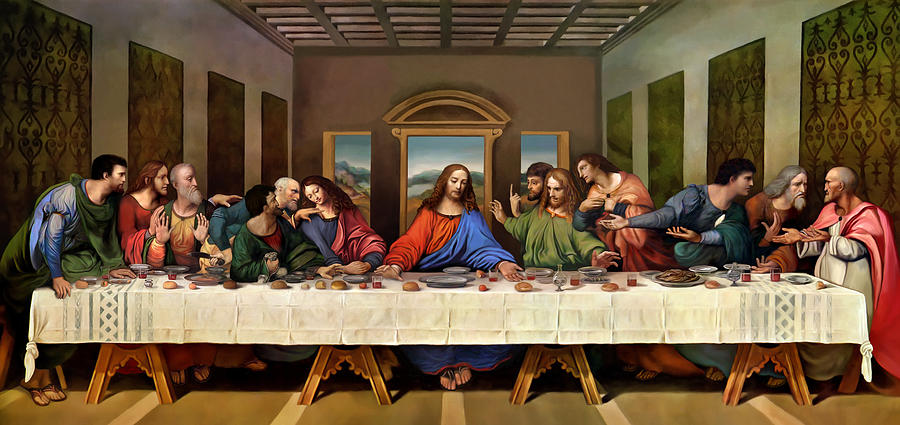
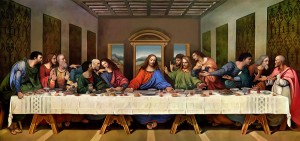
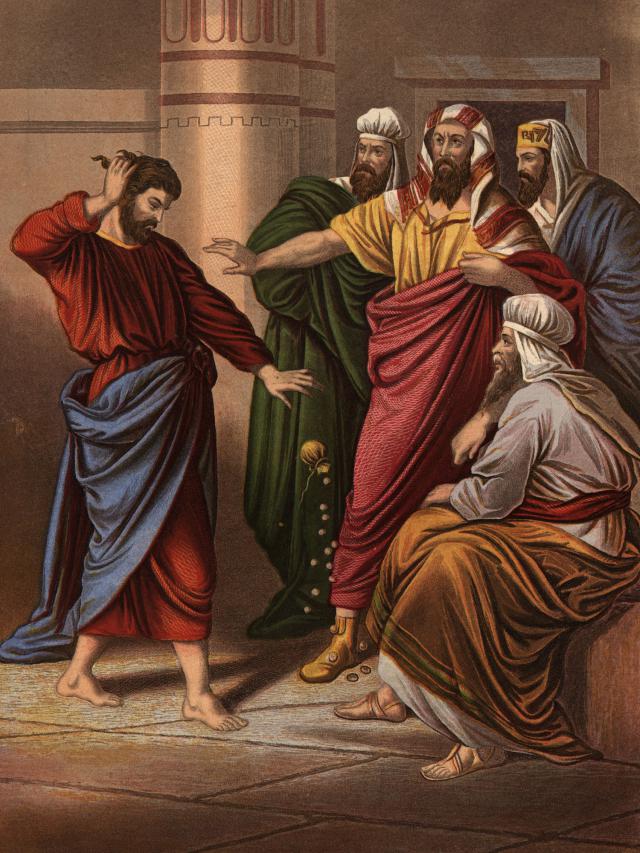
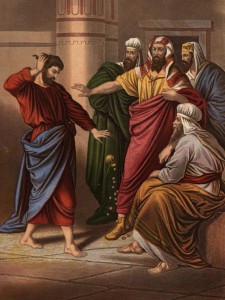









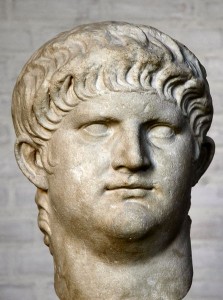
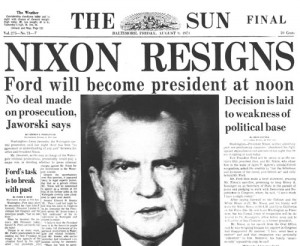
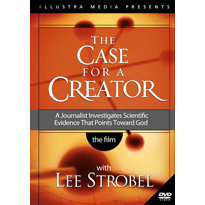
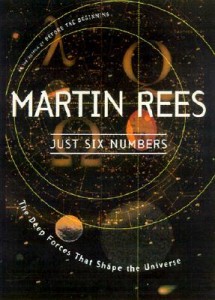




You must be logged in to post a comment.